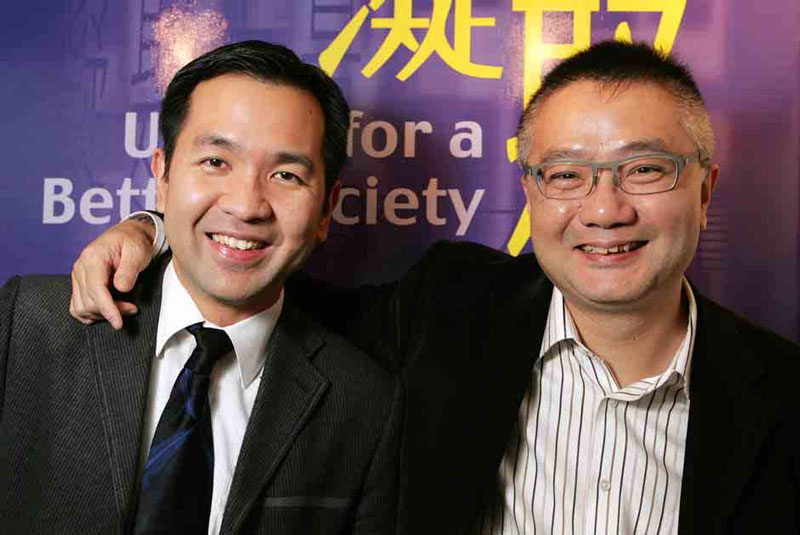Why Social Enterprises Must Really Mean Business
_TUESDAY, DECEMBER 28, 2010 SOUTH CHINA MORNING POST_
Lana Lam
For the first time in its 23-year history, Operation Santa Claus is supporting two social enterprises, mirroring a growing trend in Hong Kong. Since the government offered HK$150 million for social enterprises five years ago, more than 300 have started up in the city. But building a sustainable business that benefits the disadvantaged does not happen overnight and should not be confused with charity. "A social enterprise is a business and a charity is a charity," said Howard Ling, senior manager of the Hong Kong Council of Social Service's social enterprise business centre.

Senior manager Howard Ling (left) and Cliff Choi, spokesman for the Council of Social Service.
Photo: Dale de la Rey
He said many operate like charities under a "non-government organisation" (NGO) banner which misleads people into thinking they are not-for-profit. "Our definition is really focused on what social problems or social issues they are trying to solve or address. As long as the enterprise is set up for solving that particular problem or addressing that particular issue, it is a social enterprise." The government funding for NGOs in 2005 caused a boom. Ling said: "Suddenly you had 330 social enterprises in Hong Kong within five years. It’s like giving birth to 300 children in five years."
He added that Operation Santa Claus (OSC), the fundraising appeal run by the South China Morning Post and RTHK, had a role to play in educating the public through its support of two social enterprises. One is a mini-store staffed and run by women from low-income backgrounds trained by the Hong Kong Women Workers’ Association. The other is a merchandise and website design business run by Direction Association for the Handicapped.
Ling said: "Creating an employment opportunity is not hard but if we create jobs that are tailor-made so they explore their strengths rather than weaknesses – that process is very meaningful." To qualify for OSC funding, the social enterprises had to be established and should not have already received government funding. Ling emphasised: "OSC covers those with self-vigour, energy and the motivation to start a social enterprise themselves. "If we look at the Hong Kong Women Workers’ Association example, they started the kiosk at the Chinese University of Hong Kong 10 years ago selling snacks, chips and batteries. It was like a convenience store for students.
"They hired unemployed women from low-income and low-educated backgrounds and after 10 years, they asked OSC for money to start another kiosk in another school. "From our perspective, this is a good investment. First, they have got enough experience and you can imagine the education impact they can make in the new area.
"It is not about how good they are. It’s about how good they want to be."